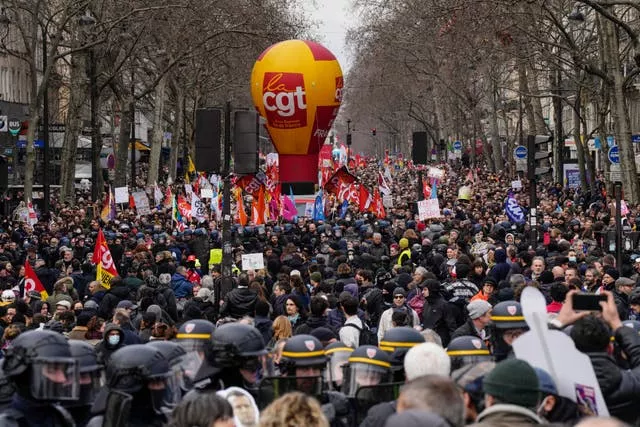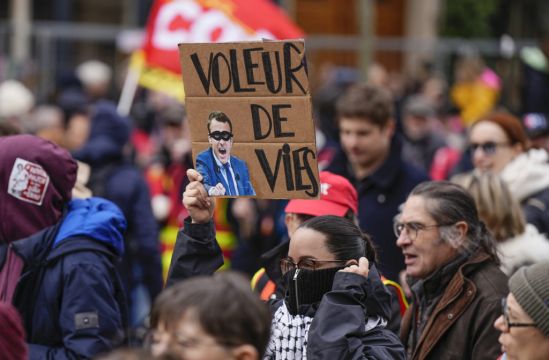Opponents of French President Emmanuel Macron’s bid to raise the retirement age from 62 to 64 have staged more protests.
The nationwide rallies and marches on Saturday were the second round of protests in four days against Mr Macron’s pension reform proposals and the seventh round since January.
More than a million people marched in cities and towns on Tuesday, but Mr Macron’s refusal to accept union leaders’ request for a meeting has fed the determination of protesters, the leader of the leftist CGT union said before a march in Paris.
“There’s more anger,” Philippe Martinez insisted, adding that refusing to meet the union leaders organising the protests was an insult amounting to “giving the finger”.

Instead, Mr Macron wrote a letter to unions. He said he chose to “make the French work a little longer” because other options would have involved “decreasing pensions, raising taxes or letting our children and grandchildren carry the financial burden”.
The legislation is currently under debate in the Senate. On Friday, the government asked for a special procedure to speed up the process by scheduling a single vote on the entire Bill rather than separate votes on each article and hundreds of amendments.
If the Bill is approved by the conservative-controlled Senate, as expected, it would continue next week on its way through France’s complex legislative process.
The government has not ruled out invoking a special constitutional power to force the Bill through parliament without a vote after Senate debate concludes.
Laurent Berger, head of the moderate French Democratic Confederation of Labour (CFDT) said using the special power, even if legal, would be undemocratic.
“The fight is not lost,” he said.

Polls consistently show a majority of people opposed to the retirement plan.
However, turnout in morning protests in several cities, including in Nice, the Riviera city, was lower than during Tuesday’s marches.
The Paris march also appeared thinner.
No official figures were available.
Scuffles with police broke out less than two hours after the start of the Paris march, with security forces trying to separate troublemakers dressed in black who regularly show up at protests and typically destroy shop and bank windows.
Mr Berger, the CFDT leader, brushed aside the numbers, which unions cited in the past by unions to demonstrate that popular opinion stood against the retirement plan.
“Sometimes when there are less people in the streets, there is more anger in the head,” he said before the Paris march.







